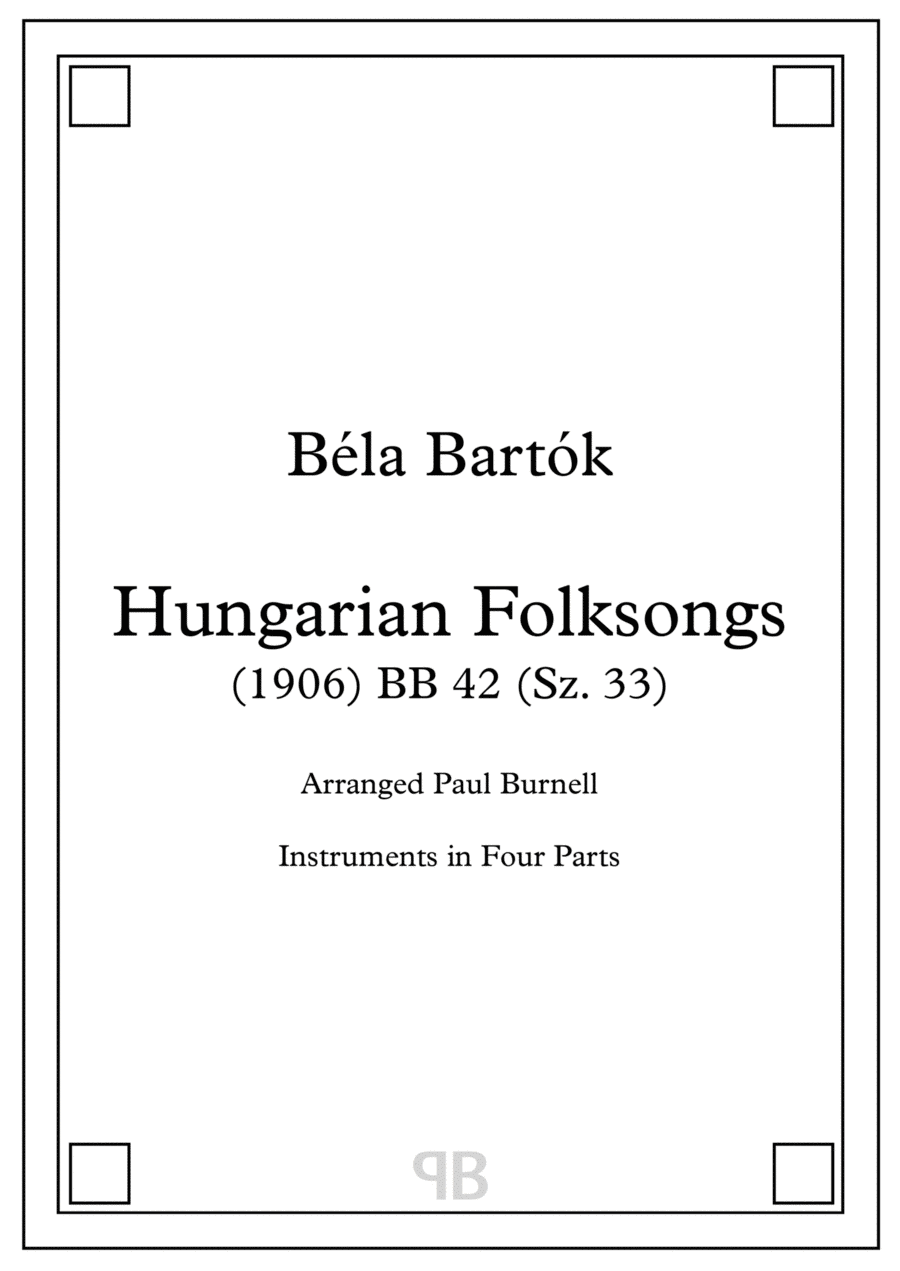Small Ensemble,Strings - Level 3 - Digital Download SKU: A0.835891 Composed by Bela Bartok. Arranged by Paul Burnell. 20th Century,Folk,World. Score and parts. 72 pages. Paul Burnell #6521857. Published by Paul Burnell (A0.835891). Hungarian Folksongs (1906) BB 42 (Sz. 33), Béla Bartók, arranged by Paul Burnell for instruments in four partsDownload comprises both score and parts.Duration 14:00Score in CThe arrangement is suitable for multiple quartet combinations with parts available (and potential instrumentations suggested) as follows:Part 1: C, Eb (Flute, Oboe, Alto Recorder, Eb Clarinet, Violin 1)Part 2: C, Bb, G (Alto Flute, Oboe, Tenor Recorder, Bb Clarinet, Violin 2)Part 3: C, Bb, Eb, F (Bb Clarinet, Bass Recorder, Alto Saxophone, Horn in F, Violin 3, Viola)Part 4: C, Bb, F (Bassoon, Great bass Recorder, Tenor Saxophone, Horn in F, 'Cello) Part 4 may be played an octave lower than written - using the 'Bass Clef up 8' part.Any other appropriate instruments, even if not suggested above, may play.The keys of the original compositions are retained in these arrangements.Programme note:In 1906 the Hungarian composers Béla Bartók (1881 â 1945) and Zoltán Kodály (1882 â 1967) published a collection of twenty Hungarian Folksong arrangements for voice and piano ('Magyar népdalok énekhangra és zongorára'). The first ten arrangements are by Bartók. The first song: 'Elindultam szép hazámból' (I left my beautiful fatherland) came to be applied to Bartók himself after his self-imposed exile in the USA. The third and fourth movements are in two parts - the third movement presenting two versions of 'Fehér László', and the fourth movement containing two different songs - 'A gyulai kert alatt' and 'A kertmegi kert alatt'. In later editions, the fifth song - 'Ucca, ucca, ég az ucca' - was omitted, but is retained in these arrangements for instruments in four parts.The titles of the ten songs by Bartók are:1. Elindultam szép hazámbul / Far Behind I Left My Country2. Ãltal mennék én a Tiszán ladikon / Crossing the River3a. Fehér László / The Horse-thief3b. Fehér László / The Horse-thief4a. A gyulai kert alatt / In the Summer Fields4b. A kertmegi kert alatt / I Was in a Garden Green5. Ucca, ucca, ég az ucca6. Ablakomba, ablakomba / Deceived in Love7. Száraz ágtól messze virÃt a rózsa / Loveâs a Burden8. Végigmentem a tárkányi / Walking Through the Town9. Nem messze van ide kis Margitta / The Horseman10. Szánt a babám / My Love Has Gone A-ploughing.
